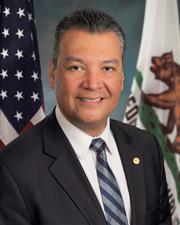0
0
0
Judicial Ethics and Anti-Corruption Act of 2023
3/12/2024, 12:02 PM
Summary of Bill S 1908
Bill 118 s 1908, also known as the Judicial Ethics and Anti-Corruption Act of 2023, is a piece of legislation introduced in the US Congress aimed at addressing issues of ethics and corruption within the judicial system. The bill seeks to establish stricter guidelines and regulations for judges and other judicial officials to ensure transparency and accountability in their decision-making processes.
One of the key provisions of the bill is the establishment of a code of conduct for judges, which outlines ethical standards and guidelines that they must adhere to in order to maintain the integrity of the judicial system. This code of conduct includes provisions related to conflicts of interest, impartiality, and the acceptance of gifts or other forms of compensation.
Additionally, the bill includes measures to increase transparency in the judicial system, such as requiring judges to disclose financial interests and potential conflicts of interest. This is intended to prevent situations where judges may be influenced by outside factors in their decision-making. Furthermore, the Judicial Ethics and Anti-Corruption Act of 2023 includes provisions for the investigation and prosecution of judicial officials who engage in unethical or corrupt behavior. This includes the establishment of a special oversight committee to monitor and investigate allegations of misconduct within the judicial system. Overall, the goal of Bill 118 s 1908 is to promote integrity and accountability within the judicial system, and to ensure that judges and other judicial officials uphold the highest ethical standards in their work. By implementing stricter guidelines and regulations, the bill aims to prevent corruption and maintain public trust in the judiciary.
One of the key provisions of the bill is the establishment of a code of conduct for judges, which outlines ethical standards and guidelines that they must adhere to in order to maintain the integrity of the judicial system. This code of conduct includes provisions related to conflicts of interest, impartiality, and the acceptance of gifts or other forms of compensation.
Additionally, the bill includes measures to increase transparency in the judicial system, such as requiring judges to disclose financial interests and potential conflicts of interest. This is intended to prevent situations where judges may be influenced by outside factors in their decision-making. Furthermore, the Judicial Ethics and Anti-Corruption Act of 2023 includes provisions for the investigation and prosecution of judicial officials who engage in unethical or corrupt behavior. This includes the establishment of a special oversight committee to monitor and investigate allegations of misconduct within the judicial system. Overall, the goal of Bill 118 s 1908 is to promote integrity and accountability within the judicial system, and to ensure that judges and other judicial officials uphold the highest ethical standards in their work. By implementing stricter guidelines and regulations, the bill aims to prevent corruption and maintain public trust in the judiciary.
Congressional Summary of S 1908
Judicial Ethics and Anti-Corruption Act of 2023
This bill makes various changes to the federal framework governing judicial ethics.
Among the changes, the bill
- prohibits federal judges and Supreme Court Justices from owning individual stocks and securities;
- requires the Judicial Conference of the United States to issue regulations restricting the solicitation or acceptance of gifts in connection with a private judicial seminar;
- expresses the sense of Congress that the Code of Conduct for U.S. Judges shall apply to Supreme Court Justices;
- requires federal judges and Supreme Court Justices to report on each association or interest that would require recusal, including any financial interest of a spouse or minor child who resides in the household; and
- establishes a committee to review complaints against the Supreme Court.
Read the Full Bill
Current Status of Bill S 1908
Bill S 1908 is currently in the status of Bill Introduced since June 8, 2023. Bill S 1908 was introduced during Congress 118 and was introduced to the Senate on June 8, 2023. Bill S 1908's most recent activity was Read twice and referred to the Committee on the Judiciary. as of June 8, 2023
Bipartisan Support of Bill S 1908
Total Number of Sponsors
1Democrat Sponsors
1Republican Sponsors
0Unaffiliated Sponsors
0Total Number of Cosponsors
16Democrat Cosponsors
14Republican Cosponsors
0Unaffiliated Cosponsors
2Policy Area and Potential Impact of Bill S 1908
Primary Policy Focus
LawAlternate Title(s) of Bill S 1908
Judicial Ethics and Anti-Corruption Act of 2023
Judicial Ethics and Anti-Corruption Act of 2023
A bill to establish judicial ethics.
Comments
Sponsors and Cosponsors of S 1908
Latest Bills
ESTUARIES Act
Bill HR 3962December 13, 2025
Federal Maritime Commission Reauthorization Act of 2025
Bill HR 4183December 13, 2025
National Defense Authorization Act for Fiscal Year 2026
Bill S 1071December 13, 2025
Enduring Justice for Victims of Trafficking Act
Bill S 2584December 13, 2025
Technical Corrections to the Northwestern New Mexico Rural Water Projects Act, Taos Pueblo Indian Water Rights Settlement Act, and Aamodt Litigation Settlement Act
Bill S 640December 13, 2025
Incentivizing New Ventures and Economic Strength Through Capital Formation Act of 2025
Bill HR 3383December 13, 2025
BOWOW Act of 2025
Bill HR 4638December 13, 2025
Northern Mariana Islands Small Business Access Act
Bill HR 3496December 13, 2025
Wildfire Risk Evaluation Act
Bill HR 3924December 13, 2025
Energy Choice Act
Bill HR 3699December 13, 2025
Judicial Ethics and Anti-Corruption Act of 2023
Bill HR 3973December 15, 2023





